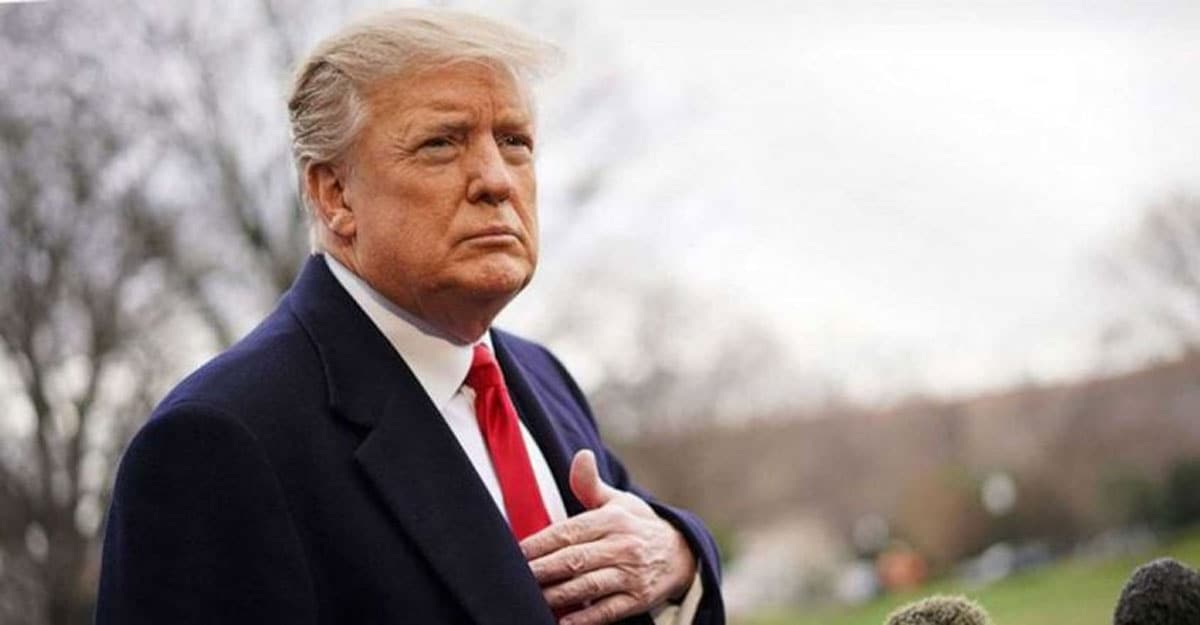Donald Trump is the only president to be impeached twice in U.S. history. The Senate hearing on the second impeachment begins today (February 9). What’s next?
What is the difference between an impeachment and a Senate trial?
The US Congress (Congress) has two houses. The lower house, the House of Representatives, and the upper house, the Senate. The president is impeached by the House of Representatives. The Senate will hear whether the impeached president should be removed from office. Simply put, an impeachment in the House of Representatives is like a procedure in a police station.
There is a charge going on. The Senate will then proceed with a court order. Accordingly, members of the Senate must be sworn in as judges before the trial. An absolute majority is enough to pass an impeachment in the House of Representatives. But a two-thirds majority (67 out of 100) is needed to pass the trial in the Senate.
Three presidents have been impeached in the 250 – year history of the United States. Andrew Johnson (1868), Bill Clinton (1998), Donald Trump (2019). All three were acquitted by the Senate and allowed to remain in power. Many mistakenly believe that Richard Nixon was impeached. Nixon resigned at the time of the impeachment (1974). The trial of Trump’s second impeachment (January 2021) is about to begin. Trump completed his term before the trial began.
What’s next?
In the first impeachment, members of parliament from his Republican Party sided with Trump. That is not the case this time. The charge against Trump is that he provoked his followers to attack the parliament building on January 6, 2021. Regardless of Trump’s arguments about the outcome of the election and so on, the position of many Republicans in the Senate is that violence and sabotage against parliament can in no way be justified or justified.
At the same time, Republican members will focus on whether the impeachment proceedings against the outgoing president are constitutional or logical. That is, the debate is not about whether Trump can be acquitted, but on whether Trump should be prosecuted now that he is out of power. It may also be argued that it would be an unnecessary practice to prosecute those who have resigned.
Why the trial?
Democrats are targeting some other things in this trial. It does not matter if Trump is out of power. Trump is very likely to run again in 2024. The way to run for the presidency once again in the future must also be closed.
Democrats aim to prevent him from running for the presidency in the future if the impeachment trial passes, and to prevent him from enjoying the same benefits and privileges as a former president (including receiving intelligence). For this, separate resolutions have to be passed.
Will it pass in the Senate?
The 100-member Senate now has equal membership of Democrats and Republicans (50–50). The Senate hearing will pass only if at least 17 members of the Republican Party defect to the opposition. As many as 92 members of the Senate voted against Trump on Jan. 6, the day of the violence in parliament. That was the emotional vote of the day. The same level can no longer be expected.
Currently, only 5 Republicans in the Senate are loyal to Trump. This may change further. Republicans will approach whether Trump’s right or wrong, but whether the current trial is necessary or not. In effect, Trump is likely to be indirectly acquitted.
The actual courtroom
The Senate hearing will be presided over by the Chief Justice of the Supreme Court. All members of the Senate will be judges. Accordingly, the members of the Senate were sworn in as jurors for the trial. Attorneys from both sides will now present arguments before them.
The trial is set to begin on Wednesday. Both sides are allowed 16 hours to present their arguments. Saturday, the Sabbath, is a day off. Will be reuniting on Sunday. (As this is the trial of the outgoing President, the Chief Justice of the Supreme Court will be replaced by the most senior member of the Senate)
Will Trump attend?
Trump has rejected a request to appear before the Senate. Lawyers will be sent instead. After the first round of debate, the Senate can decide whether to send a subpoena to summon Trump. If the warrant (subpoena) is sent, Trump will have to appear.
Trump unarmed
Trump is now unarmed. His biggest crisis is that there is no place on Twitter other than resigning. Trump’s strength has been his call, challenge and criticism via Twitter at any crucial stage, including the first impeachment, the subsequent trial, the election campaign, and allegations of irregularities.
Trump is in forced silence at his own resort in Florida as the trial begins in the Senate this time. There is no doubt that deleting Trump tweets, which used to flow like every second before, will reduce the fat of the trial.
English Summary: What’s ahead as Trump impeachment trial begins
– .

